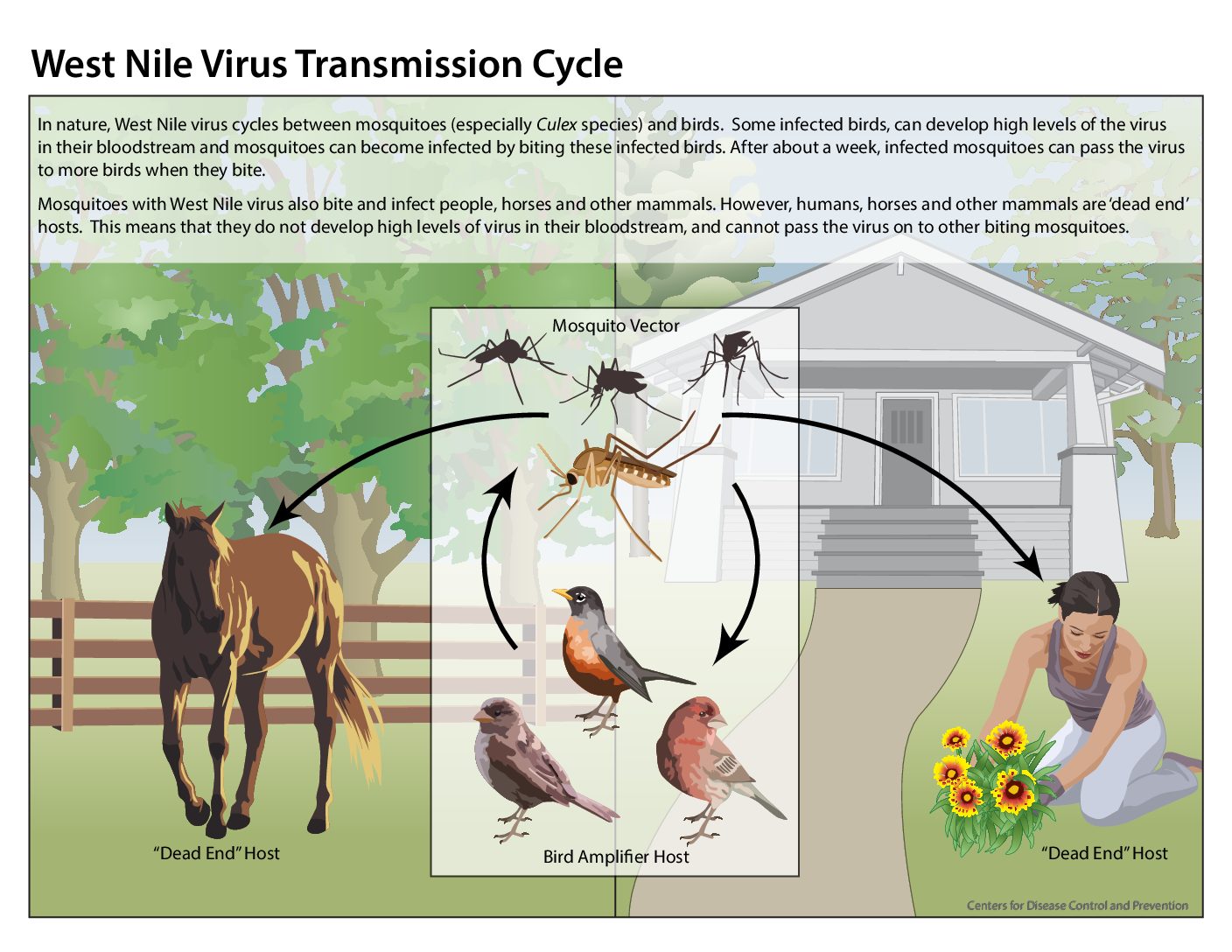A Pittsburgh resident in her 70s was briefly hospitalized with the first human case of West Nile Virus (WNV) in 2022, the Allegheny County Health Department reported Tuesday.
The resident lives in Squirrel Hill, but infected mosquitos were also collected in Point Breeze, the North Side and Wilkinsburg Borough. Human cases have been found in 11 counties, most of them in Philadelphia County.
With a case so close to home, The Rocket interviewed Kris Benkeser, the director of health services and student health and wellness, to see if students should worry about the virus.
“There’s no need to panic,” she said. “It’s more of a wake-up call to practice good outdoor safety.”
WNV is the leading cause of mosquito-borne disease in the United States, but about 80% of people do not develop symptoms. The other 20% show mild symptoms like fever, body aches, nausea and sometimes rash or swollen lymph glands.
However, about one in 150 people develop severe symptoms that affect the central nervous system like encephalitis (inflammation of the brain) or meningitis (inflammation of the membranes surrounding the brain and spinal cord).
Other severe symptoms can include disorientation, coma, tremors, blindness, numbness and paralysis.
At that point, the reality is the infected would be life-flighted to Pittsburgh from the Student Health Center, Benkeser said.
“You want to get in with a major hospital system that has the epidemiologist and infectious-disease docs.”
An epidemiologist searches for a disease’s cause, who is at risk and determines how to stop the spread.
WNV can be hard to diagnose because its symptoms are similar to those of many other diseases.
“There really isn’t a West Nile Virus test per se,” Benkeser said. “They run a panel of tests and rule out everything else that we know we have a test for that can cause these symptoms. It’s almost like a diagnosis of exclusion.”
While the leading cause of WNV is getting bitten by a mosquito, the disease can also be contracted from dead birds. The mosquitos don’t become infected until they feed on infected birds.
The mosquitos then will bite other birds and mammals to spread the disease. However, mammals are “dead end” hosts, which means the virus does not develop enough in the bloodstream to infect others.
The disease cannot be spread by sneezing, coughing or touching live animals. Whenever disposing of a dead bird, use gloves, plastic bags or a shovel to avoid touching it.
Mosquitos that transmit WNV often breed in areas with standing water. These areas can include catch basins, gutters, flowerpots, tires, kitty pools and birdbaths. When possible, eliminate these standing water pools.
Pools that cannot be removed should be treated with mosquito dunks. These are small, donut-shaped disks that are made with bacillus thuringiensis israelenis (Bti), which is a naturally occurring soil bacteria. The disks are for standing water approximately the size of a bird bath. For larger areas like backyard ponds, there is a granular form.
Bti can be purchased in many outdoor supply or garden stores. The bacteria only kills mosquitos and black fly larvae, so it’s harmless to people, pets, aquatic life and plants.
Students can also protect themselves by wearing long sleeves and covering exposed skin.








